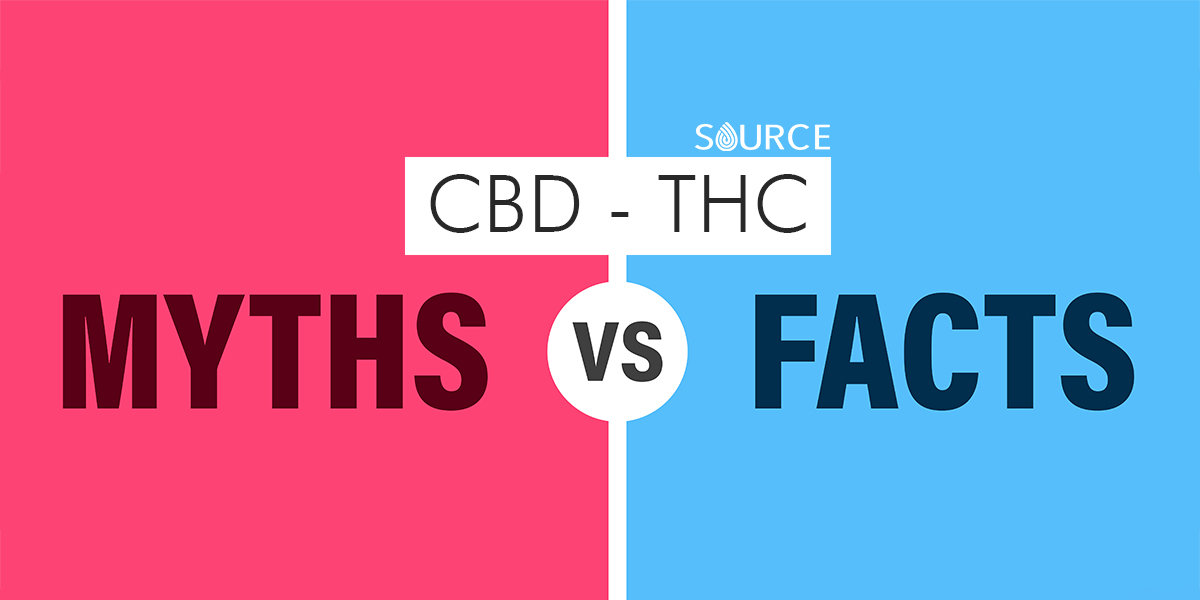CBD Oil News
THC vs CBD: Separating Fact From Fiction
THC vs CBD: the difference between these two is one of the biggest sources of confusion when it comes to the cannabis plant.
And yes, both come from cannabis — but that doesn’t make them the same. Many people still associate one with the other or think they’re identical. They are similar in some ways, but also have a few major — and important — differences.
THC vs CBD
THC and CBD are the two primary cannabinoids that occur naturally in the cannabis plant. Cannabinoids are a class of chemical compounds that interact with cannabinoid receptors in the endocannabinoid system.
There are over 480 different compounds present in the cannabis plant, and at least 113 of them have been classified as cannabinoids.
So, how do these two cannabinoids differ?
- THC – Also known as tetrahydrocannabinol, THC is found in high concentrations in marijuana plants. It produces the psychoactive effects often associated with cannabis.
- CBD – Also known as cannabidiol, CBD is found primarily in hemp plants and is often used for wellness purposes and other applications.
These differences come from their chemical make-up…
[RELATED: Are Hemp and Marijuana the same? The confusion exists here too. Check this out.]A Little Chemistry Lesson
CBD and THC have the same basic chemical structure, made up of:
- 21 carbon atoms
- 30 hydrogen atoms
- 2 oxygen atoms
The difference in the arrangement of the atoms is minor, but these small changes can have a big impact. The chemical structure affects how THC and CBD interact with the endocannabinoid system and influence various body processes.
Both cannabinoids work with receptors that influence neurotransmitter release in the brain, which plays a role in mood, sleep, and other body functions.
THC vs CBD – Myths and Facts
Myth #1 – Both come from marijuana.
Nope. Both come from cannabis, but THC comes primarily from marijuana, while CBD comes primarily from hemp.
Myth #2 – Both make you feel “high.”
According to the World Health Organization, while THC can impair cognitive performance and psychomotor abilities, “clinical studies have reported that even high doses of oral CBD do not cause the psychoactive effects characteristic of THC and cannabis rich in THC.”
- THC is the main psychoactive component of cannabis. It’s what causes the “high.” When you think of relaxation, altered perception, or the “munchies,” THC is responsible.
- CBD does not produce these effects. Instead, it interacts differently with cannabinoid receptors and can influence how THC affects the body.
Myth #3 – You can overdose on CBD.
There have been no reported cases of CBD overdose. According to the World Health Organization, CBD is generally considered safe in large quantities. The most common, mild side effects may include:
- Tiredness/fatigue
- Decreased appetite
- Dry mouth
- Diarrhea
Excess THC can cause temporary side effects such as:
- Dry mouth
- Bloodshot eyes
- Slower response times
- Memory issues
- Poor coordination
- Increased heart rate
Final Thoughts
CBD and THC come from the same plant, but that doesn’t make them the same. Both have distinct properties and roles in the plant’s chemistry, and each is studied for different applications. Understanding these differences can help you make informed decisions about how you engage with cannabis products.
FDA Disclaimer:
These statements have not been evaluated by the Food and Drug Administration. This product is not intended to diagnose, treat, cure, or prevent any disease.

